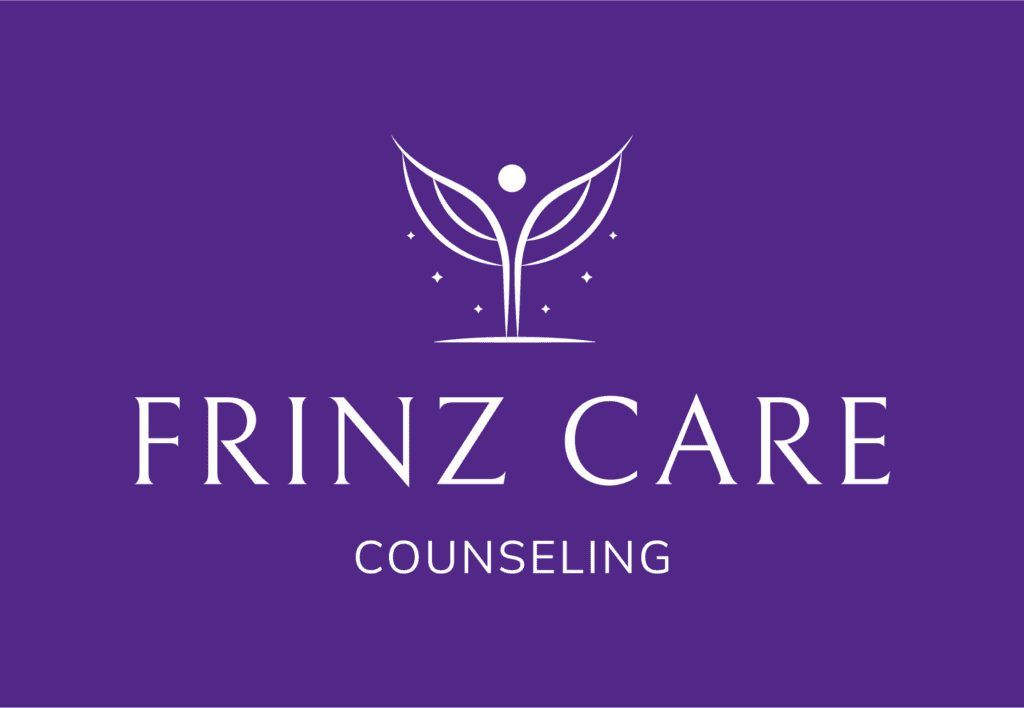Introduction to Couples Therapy
Are you and your partner struggling to communicate effectively, feeling distant, or facing unresolved conflicts that just won’t go away? Couples therapy could be a lifeline, providing a space to explore, understand, and resolve intricate relational issues under professional guidance.
At Frinz Care, we’ve seen firsthand how the pressures of busy work life, daily stressors, and life transitions can take a toll on romantic relationships. It’s not uncommon for couples to reach a point where they need outside help to repair and strengthen their bond. In the grand tapestry of couplehood, threads can fray and patterns can become dull; couples therapy aims to mend the fabric and restore its vibrancy.
This brief guide will serve as your first step towards understanding the different options available in the realm of couples therapy. Together we’ll delve into the intricacies of various therapy forms, and how they can cater to the unique needs of your relationship.
Quick Glance: Couples Therapy Options
- Communication Skills Enhancement: Learning how to express thoughts and feelings in constructive ways.
- Conflict Resolution Strategies: Tools to handle disagreements and reduce tensions.
- Developing Empathy: Strengthening the ability to understand each other’s perspectives.
- Intimacy Building: Techniques to deepen physical and emotional connection.
- Customized Online Sessions with Frinz Care: Tailored therapy from the convenience of your home.

Join us as we embark on a compassionate journey towards fostering a healthier, happier, and more fulfilling partnership.
Conclusion: The Power of Commitment, Communication, Compromise, and Consistency in Couples Therapy
Couples therapy isn’t just about fixing what’s broken; it’s about nurturing a relationship so it can grow stronger and more resilient. As we wrap up our ultimate guide to couples therapy options, it’s clear that the success of this therapeutic journey hinges on four critical pillars: commitment, communication, compromise, and consistency.
Commitment: The Foundation for Growth
First and foremost, both partners must be committed to the therapy process and to making positive changes in their relationship. This dedication is the foundation upon which all other efforts are built. Without commitment, the likelihood of lasting change is slim.
Communication: The Path to Understanding
Effective communication is the pathway to understanding one another’s perspectives, feelings, and needs. In therapy, couples learn to express themselves clearly and listen actively. It’s not just about talking; it’s about connecting in a way that fosters empathy and closeness.
Compromise: The Art of Negotiation
No two individuals see eye to eye on everything, which is why compromise is an art that couples must learn to negotiate. Therapy helps partners find common ground and make concessions that honor both parties’ values and desires, leading to fair and balanced solutions.
Consistency: The Key to Lasting Change
Finally, consistency in applying the skills learned in therapy is crucial for lasting change. It’s about practicing new communication techniques, maintaining newly established boundaries, and continuously showing up for each other.

As we at Frinz Care always emphasize, the goal of therapy is not just to navigate through rough patches but to equip couples with the tools they need to keep their relationship thriving, not barely surviving. Remember the words of VKH: “Keep Your Relationship Thriving Not Barely Surviving.”
Couples therapy, when approached with the right mindset and guided by a skilled therapist, can be profoundly transformative. It’s a place where couples can safely explore their issues, learn to understand and support each other, and build a stronger, more fulfilling partnership.
And for those who are ready to embark on this journey, we are here to support you. Whether you prefer face-to-face sessions or the convenience of online counseling, our mental health professionals are dedicated to helping you achieve the healthy and happy relationship you deserve.
In the words of a Reddit user, “Couples therapy is not just about resolving conflict; it’s about building a relationship that’s equipped to handle the challenges life throws your way.”
Take the first step today. Commit to the process, communicate openly, be willing to compromise, and consistently apply what you learn. These are the keys to a successful couples therapy experience and, ultimately, a stronger bond with your partner.
Understanding the Success Rate of Couples Therapy
The Statistics Behind Couples Therapy Success
When considering couples therapy, many partners wonder about its effectiveness. The question that often comes to mind is: “What is the success rate of couples therapy?” According to research, couples counseling currently boasts a success rate of roughly 70 percent. This statistic is a beacon of hope for partners in distress, signaling that therapy can be a viable path to relationship recovery and improvement.
Factors Influencing the Success of Couples Therapy
The success of couples therapy isn’t solely determined by the method or the therapist; several factors play a critical role in the outcome. Here are some pivotal elements that influence the effectiveness of couples therapy:
- Commitment to the Process: Both partners must be willing to engage in the therapeutic process, open to change, and committed to implementing strategies learned during sessions.
- Timing of Intervention: Couples who seek therapy early in the relationship or soon after problems arise tend to have better outcomes than those who wait until issues are deeply entrenched.
- Quality of the Therapeutic Relationship: A trusting, collaborative relationship between the therapist and the couple is fundamental for successful therapy.
- Communication Skills: The ability of partners to communicate effectively with each other contributes to the success of the therapy.
- Therapist’s Expertise: A therapist’s experience and specialization in couples therapy can significantly impact the outcome.
At Frinz Care, we understand the intricacies of these factors and strive to create an environment conducive to successful therapy outcomes. Our mental health professionals are trained in various modalities, ensuring that we can tailor our approach to the unique needs of each couple.
In summary, the success rate of couples therapy is encouraging, and the factors influencing its effectiveness are multifaceted. Partners considering therapy should view it as a positive step towards improving their relationship, knowing that with effort, commitment, and the right support, many couples experience significant benefits. Join us in our endeavor to strengthen relationships through compassionate and effective therapy.
How to Prepare for Couples Therapy
Embarking on couples therapy is a significant step toward improving your relationship. Preparation can not only ease apprehension but also enhance the effectiveness of your sessions. Here’s how you and your partner can get ready for this transformative experience.
Reflecting on Current Challenges
Before attending your first session, take time for self-reflection. Identify the specific issues that are causing strain in your relationship. Are you struggling with communication, trust, or perhaps navigating a life transition? Understanding these challenges is crucial, as it sets the foundation for your therapeutic journey. As noted by many therapists, including those at Psychology Today, reflecting on the origins and patterns of these issues can be incredibly insightful and prepare you for the discussions ahead.
Setting Goals for the Relationship
What does a healthier relationship look like to you? Setting clear, achievable goals for couples therapy can guide the process and provide a roadmap for progress. Whether it’s improving communication, rebuilding trust, or enhancing intimacy, having a shared vision can keep you and your partner aligned and motivated. It’s about working together towards common objectives, as emphasized in the Frinz Care philosophy on family transitions and improving dynamics.
Discussing the Idea of Therapy with Your Partner
If you’re the one initiating therapy, approach your partner with empathy and assertiveness. Share your concerns and express how couples therapy can be beneficial. It’s essential to communicate that this is about growing together and not assigning blame. If your partner is hesitant, remind them that many therapists, including Frinz Care, offer virtual counseling options, providing flexibility and privacy for those with busy schedules.
In couples therapy, our goal is to provide a supportive environment where both partners feel heard and respected. As you prepare for this journey, we at Frinz Care are here to guide you through each step, ensuring that your relationship becomes stronger with every session.
Different Types of Couples Therapy
Exploring the landscape of couples therapy reveals a variety of approaches, each tailored to meet specific relational needs. Understanding the distinct methods can help couples choose the therapy best suited to their unique situation.
Emotion Focused Therapy (EFT)
Emotion Focused Therapy, or EFT, is a structured therapy based on the science of adult attachment and bonding. This therapy assists couples by focusing on the emotions and attachment needs that often lie at the heart of relationship issues. Therapists help partners recognize their patterns of interaction and take steps to create a more secure emotional bond and strengthen their connection.
Cognitive Behavioral Therapy (CBT)
CBT is a well-recognized approach that helps couples identify and modify detrimental thought patterns and behaviors. The goal is to improve communication, problem-solving skills, and emotional regulation. By focusing on the present and working towards specific goals, CBT can be highly effective for couples looking to change negative interaction cycles.
Gottman Method Couples Therapy
Developed by Drs. John and Julie Gottman, the Gottman Method is a research-based form of couples therapy that emphasizes the nurturing of fondness, admiration, and closeness. This method uses a thorough assessment of the couple’s relationship and integrates research-based interventions to help couples strengthen their relationships in three key areas: friendship, conflict management, and the creation of shared meaning.
Imago Relationship Therapy
Imago Relationship Therapy focuses on transforming conflict into opportunities for healing and growth. The premise is that personal growth and healing are possible in the context of a committed relationship. The therapy helps couples to understand each other’s feelings and childhood influences, communicate effectively, and reconnect on a deeper level.
Online Couples Therapy with Frinz Care
Accessing therapy from the comfort of your own home is a reality. At Frinz Care, we offer online couples therapy, providing a convenient option for busy professionals. Our virtual sessions allow couples to work on their relationships despite hectic schedules or geographical constraints. With our support, couples can navigate their challenges and work towards a stronger, more fulfilling partnership.
Each type of couples therapy offers unique benefits and may be more or less suitable depending on the couple’s specific needs and goals. It’s crucial for couples to consider what aspects of their relationship they want to improve and choose a therapy type that resonates with their values and desired outcomes.
The Impact of Couples Therapy on Relationship Satisfaction
Couples therapy can be a transformative process for partners seeking to enhance their relationship satisfaction. By addressing and resolving underlying issues, couples can rediscover their connection and foster a more fulfilling partnership.
Improving Communication and Empathy
Effective communication is the bedrock of a strong relationship. Through couples therapy, partners learn to articulate their thoughts and feelings in a way that is clear and empathetic. Active listening and expressing feelings are central skills developed in therapy sessions, which lead to a deeper understanding between partners.
At Frinz Care, we emphasize the importance of empathy as part of communication. By fostering an environment where each partner can safely express themselves, empathy naturally grows. This understanding allows couples to see situations from each other’s perspectives, aiding in conflict resolution and enhancing emotional intimacy.
Reducing Relationship Distress
Relationship distress can stem from various sources such as unresolved conflicts, stress, or misaligned expectations. Couples therapy aims to identify these sources of distress and work through them collaboratively. By employing strategies like conflict resolution and stress management, we help couples navigate their challenges effectively, minimizing the tension and hostility that can arise from misunderstandings or disagreements.
A key factor in reducing relationship distress is the establishment of healthy boundaries and the ability to manage individual and shared responsibilities. This balance is crucial for maintaining a sense of personal identity while functioning as a unit.
Re-establishing Trust and Respect
Trust and respect are fundamental to any relationship, and their absence can lead to serious issues. Couples therapy provides a pathway to rebuild these critical elements. Whether dealing with infidelity or other breaches of trust, therapy helps couples confront the issue, understand its impact, and work towards healing.
In our sessions at Frinz Care, we focus on re-establishing trust by promoting honesty, transparency, and consistency. The process includes developing strategies to support one another and maintaining healthy boundaries that respect each partner’s needs.
Couples therapy can significantly enhance relationship satisfaction by improving communication, reducing distress, and fostering trust and respect. As partners commit to the therapy process and apply the principles learned, their relationship can transform from merely surviving to truly thriving.
What to Expect in a Couples Therapy Session
Entering couples therapy can be a transformative experience for partners looking to improve their relationship. It’s a step that shows commitment to working through issues together and finding a healthier, happier path forward. But if you’re new to it, you might wonder what actually happens during a session. Let’s break it down.
The Role of the Therapist
In couples therapy, the therapist acts as a neutral third party whose primary goal is to help both partners feel heard and understood. They are not there to take sides but to facilitate a safe environment where each person can express their feelings and thoughts without judgment. The therapist will guide the conversation, helping to clarify misunderstandings and highlight patterns within the relationship that may be contributing to conflict.
A key part of the therapist’s role is to foster effective communication between partners. They will encourage you to share not just what you think or feel, but also why, digging into the deeper emotions that drive your behaviors and reactions. With their expertise, therapists can offer insights and tools that can help you both communicate more clearly and listen more effectively to each other.
Identifying Personalities, Needs, and Triggers
Each partner brings their own unique personality, needs, and triggers into the relationship. A couples therapy session will often focus on identifying these elements, as they play a significant role in how you interact with each other. For example, if one partner has a need for more quality time and the other is unaware or dismissive of this need, it can lead to feelings of neglect and resentment.
Understanding each other’s triggers is also crucial. These are often tied to past experiences and can lead to strong emotional reactions. Recognizing what sets off these reactions can be eye-opening and is the first step towards managing them more constructively.
The Process of Confrontation and Understanding
Confrontation in couples therapy doesn’t mean arguing or fighting; it means facing the issues head-on rather than avoiding them. The therapist will guide you through this process, ensuring that it’s done in a respectful and productive manner. This can involve discussing uncomfortable topics and acknowledging hurts and disappointments.
The ultimate goal is understanding—getting to the root of problems rather than just dealing with surface-level symptoms. This involves a willingness to look at oneself honestly, accept feedback, and make changes where necessary. It’s about learning to understand your partner’s perspective as well as your own and finding ways to bridge the gap between the two.
As you both work through these steps, you’ll begin to develop a deeper, more empathetic understanding of one another. It’s this understanding that forms the foundation for lasting change and improvement in your relationship.
Every couple’s journey is unique, and therapists at Frinz Care are here to support you in navigating yours. Whether you’re dealing with communication issues, life transitions, or more complex challenges, we’re committed to helping you work towards a healthier, more fulfilling partnership.
Common Issues Addressed in Couples Therapy
Couples therapy is designed to address a spectrum of issues that can arise in relationships. It’s a space where partners can explore their dynamics, understand underlying problems, and work together towards solutions. Here are some common concerns that bring couples into therapy:
Dealing with Infidelity
Infidelity shakes the very foundation of trust in a relationship. In couples therapy, partners can work through the emotional turmoil and learn how to rebuild trust. It involves understanding the reasons behind the infidelity, acknowledging the pain it has caused, and developing strategies to move forward together or apart.
Improving Communication
Poor communication is often at the heart of relationship problems. In therapy, couples can learn the art of active listening and expressing thoughts and feelings in a way that is constructive rather than confrontational. Addressing communication issues is crucial for resolving conflicts and fostering a deeper connection between partners.
Managing Life Changes (New Baby, Blended Families)
Significant life events like the birth of a child or blending families can stress a relationship. Couples therapy provides a platform to navigate these changes, ensuring both partners feel supported. It helps in setting realistic expectations and adapting to new roles within the family dynamics.
Rekindling Intimacy and Sexual Desire
Over time, intimacy and sexual desire can wane, leading to dissatisfaction in a relationship. Therapy can help couples explore the underlying issues, whether they are emotional disconnects, health-related, or stemming from other stressors. Working on intimacy is about more than just physical connection; it’s also about emotional closeness and re-establishing a sense of partnership.
Pre-Marital Concerns and Divorce
For those considering marriage, pre-marital counseling can help set the stage for a healthy relationship by addressing expectations, values, and long-term goals. On the other hand, couples contemplating divorce may seek therapy as a space to process their feelings, understand the impact of separation, and, if applicable, navigate the process amicably.
At Frinz Care, we recognize that these issues can be deeply challenging. We offer a safe and supportive environment for partners to work through their concerns. Our approach is rooted in the Four C’s: Commitment, Communication, Compromise, and Consistency, ensuring that every step taken is in the direction of a stronger, healthier relationship.


